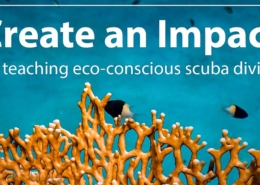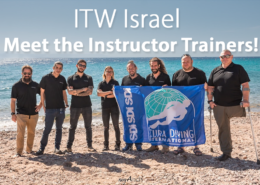Happiness, Skills, and Safety
Recently, I was having a lengthy discussion with another dive instructor. We were speaking about the topics of open water scuba diver courses and site safety. The discussion touched on various other subjects, such as enjoyment, skill sets, current views on diver buoyancy, and overall student happiness. Toward the end of the discussion, we realized that all these factors tied back together into a neat bundle that almost any dive professional should be able to recognize.
Enjoyment
So, the first big realization that we all need to have is that scuba diving is not a required life skill. For many, it may be a way to earn a living, and for others it may be a method to regain focus or find happiness. Despite these factors, scuba diving is a thing we do because we want to. Every day, all over the world, people walk into dive shops or chat with dive professionals about taking that first step in an open water course. They do this because they are excited and want to try something new. So…from that first moment, most students already have some level of fascination and excitement. Our job as dive pros is to keep that excitement alive. Essentially, we want to keep them in the sport and build our industry!
Think about your first open water course
How much time did you get with your dive instructor? Was it a one-on-one course? Was it a group of 8 students that hit the limit of course standards? Was it just one dive pro in the water or many? All of these questions may help you explain how you feel about your personal open water scuba diver course experience.
As an example, imagine you take a course to learn how to paint. There are 10 students and one teacher associated with the course. One person, for good or bad reasons, is always getting help, but you get only brief assistance or passing commentary. If you and the student who received consistent help paid the same for the program, who got the better value?
In teaching, we must remember that we are there to help everyone get better at something than they were before they started. Courses need to be adapted to ensure everyone gets fair value and they complete programs with improved skill sets and that same level of excitement as when they began.
Skill Sets
The only way we get better at something is to first try an action, learn where we may improve on that action, and then to practice that action. As we discussed earlier, every student deserves support in learning how to improve. You cannot practice what has not been taught (within reason).
Now, imagine we have eight students one day and two students the next day taking the same course. If you plan to teach the same material within matching timeframes, you will not always be equally successful. On rare occasions and with the right students I recognize that anything is possible. That said, as we mentioned before, did they receive fair value for the course they paid for? Could you have made them even better?
Using one major skill as an example, we all know that the modern scuba industry takes a very opinionated look at neutral buoyancy and open water classes. Hovering is one thing, but it takes a little time to eliminate saw-toothing and to help a student understand how factors such as leg position and kicking, situating gear efficiently, and comfortable movement are manipulated to remain comfortable and neutral during a planned activity. Did the eight students get the same face time with their educator as the two students? Is it possible you raced through the 30+ skills associated with an open water course when you had eight students to teach? Did each student learn buoyancy skills well enough that their open water dives will be fun and not frustrating?
These questions do not reflect on any one person or the industry as a whole. Instead, the focus is on satisfied customers. We want divers to stay in the sport. We want them hungry for future classes, improved skill sets, or new adventures. How do you, as one instructor, help make that happen?
Buoyancy and Safety
Lastly, my original discussion was focused on locations for open water courses. The example in question was a quarry with minimal deep areas (40+ft) and massive shallow areas (15-39ft), compared to a quarry with minimal shallow areas and much larger deep areas. The worry was that during warm months, when lots of people are diving, you may not be able to rely on enough shallow training space in certain locations. The reality is that you must plan for the class you are teaching. If I am teaching one or two students, I can easily say I feel comfortable and in control in a much smaller space. If I choose to teach eight students and I have little room to work with them, it becomes much harder to control the group and keep students organized. This immediately can create a safety concern. Taking that a step further, if we do not have much room to maneuver, is each student getting real value as they work through their skills?
The reality of this discussion comes down to risk mitigation, planning, and the provision of value. As I stated, our goal is to keep potential divers safe and happy. In most cases, students will never realize all the factors that a dive professional has to manage. Sometimes we must be willing to alter what we do and how we do it in order to safely teach the next generation of divers. This is one of the best factors associated with Scuba Diving International. The Open Water Scuba Diver program is designed to give professionals certain leeway to ensure that different types of people can be trained as they are needed to accomplish our required goals. I encourage every professional out there to look for ways to increase value for students while making them genuinely better, happy divers. If each of us tries to do this, we will see a stronger dive community as we get out and enjoy the sport.










Hagyjon egy választ!
Szeretne csatlakozni a beszélgetéshez?Nyugodtan járulj hozzá az alábbiakban!